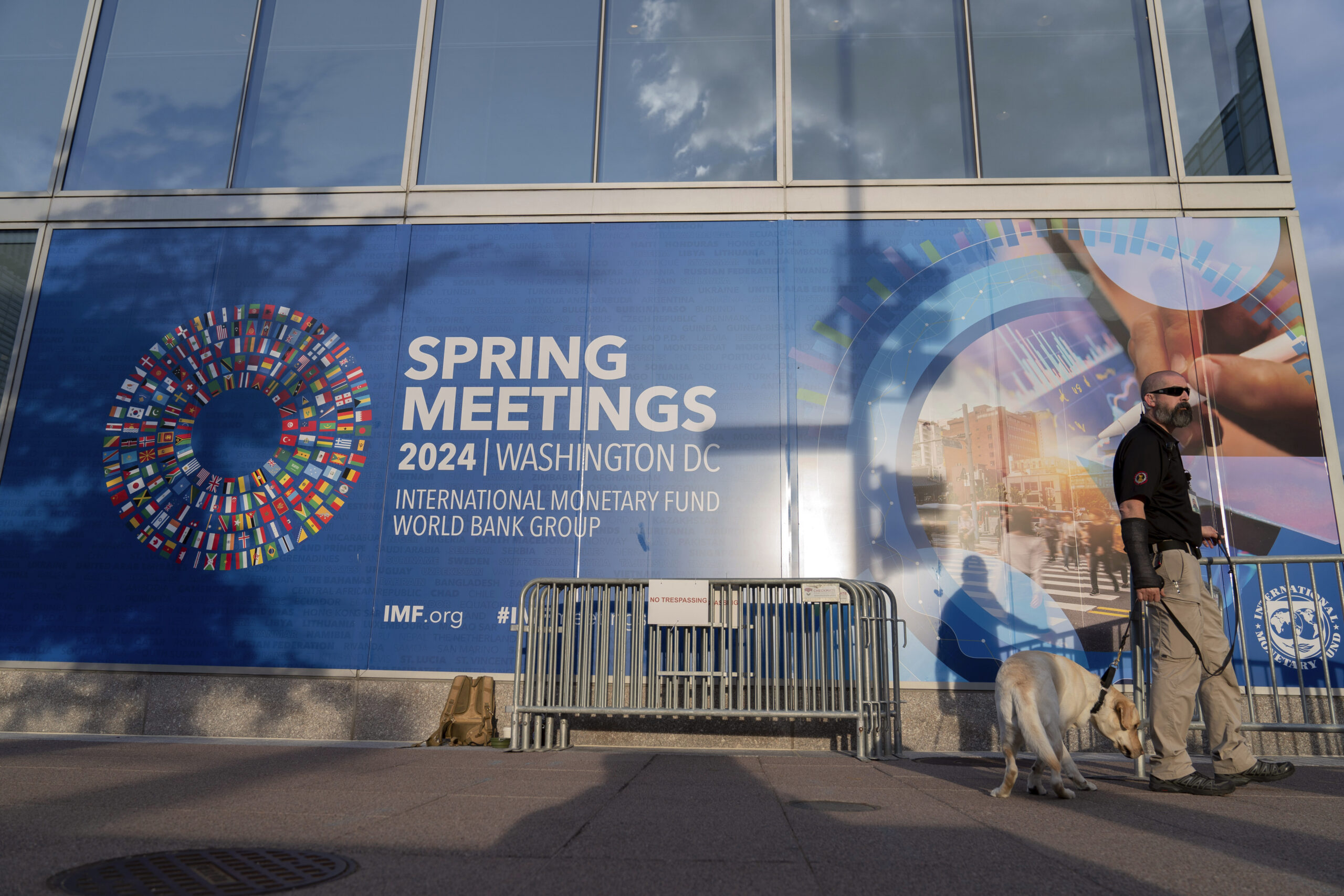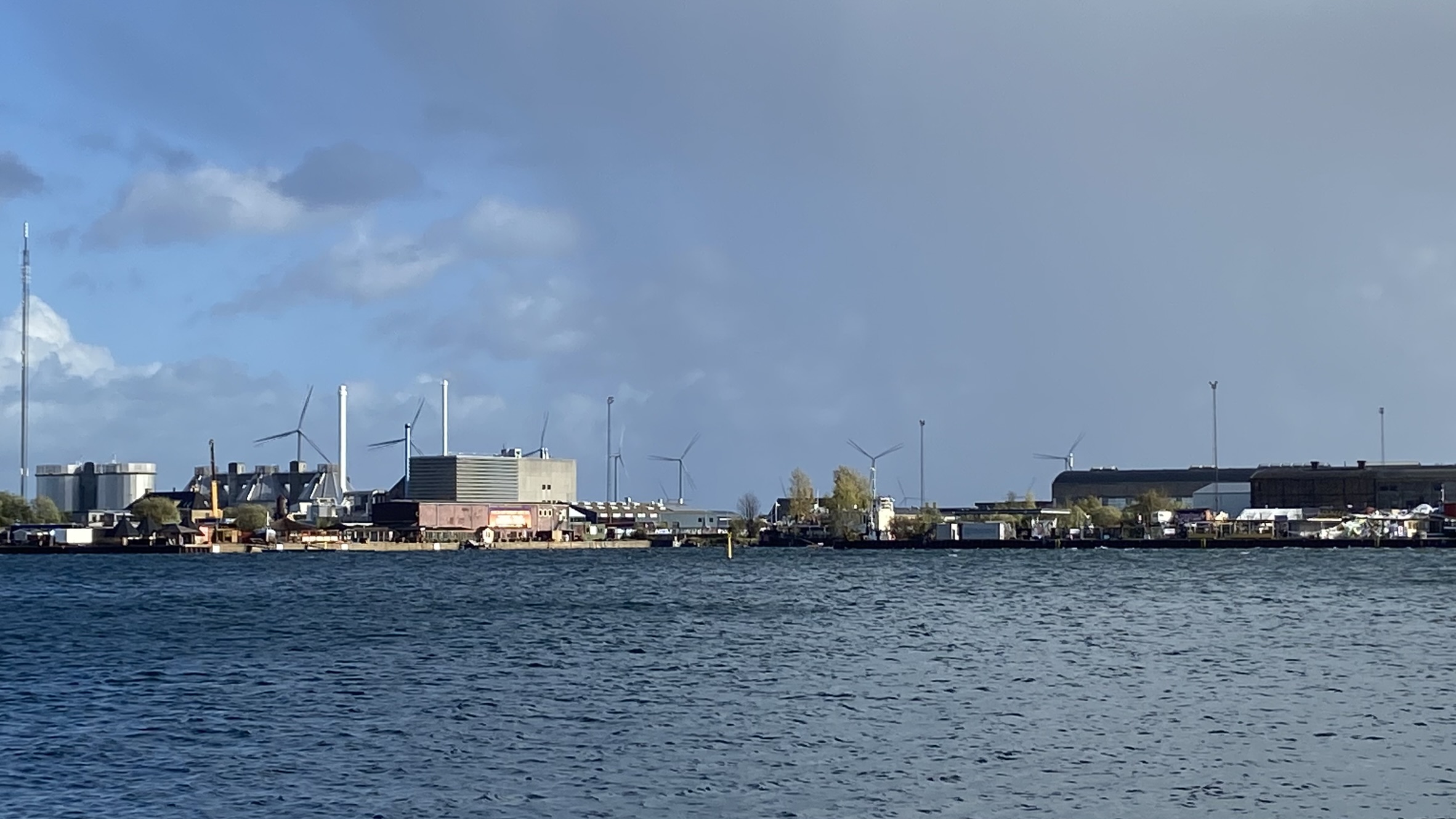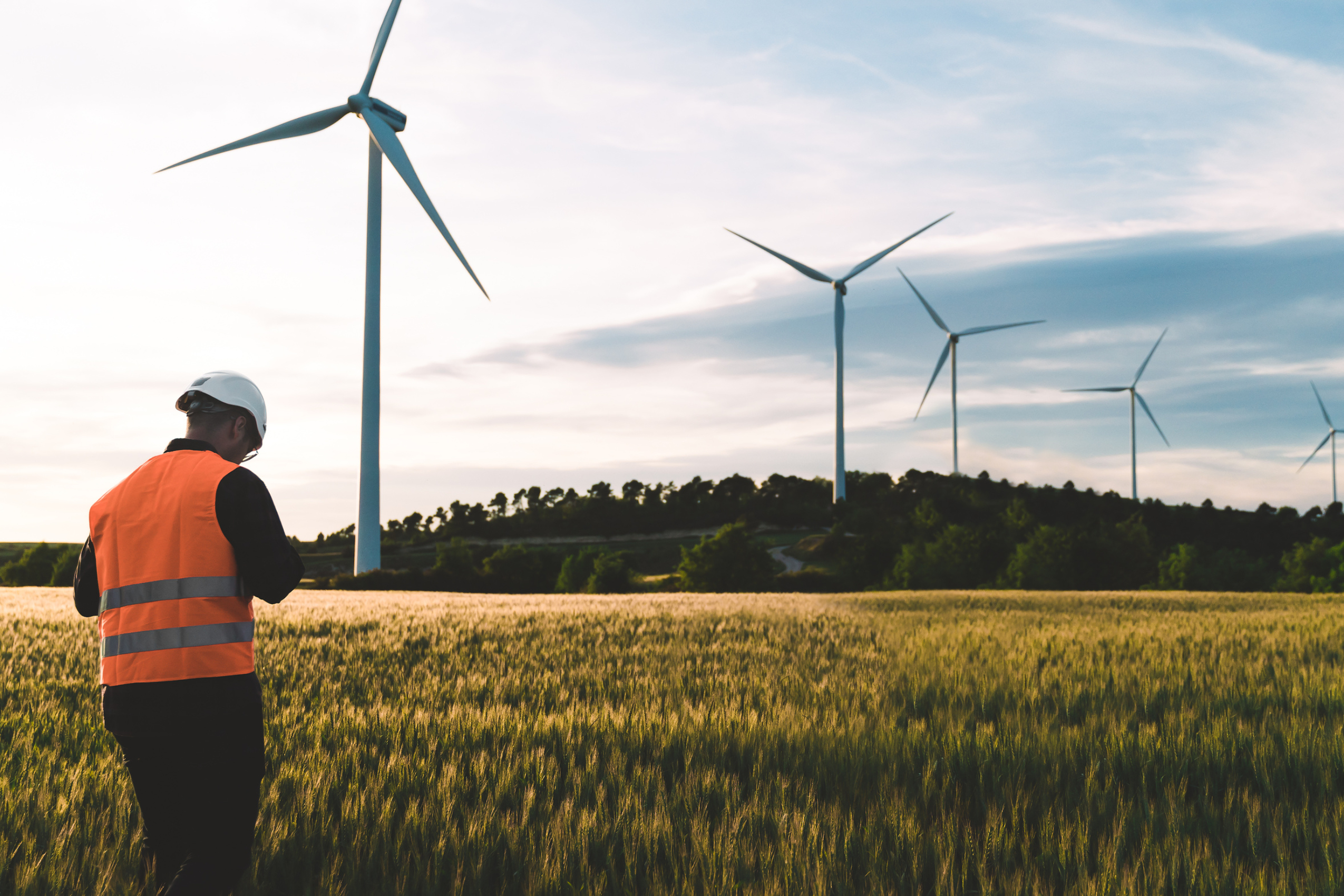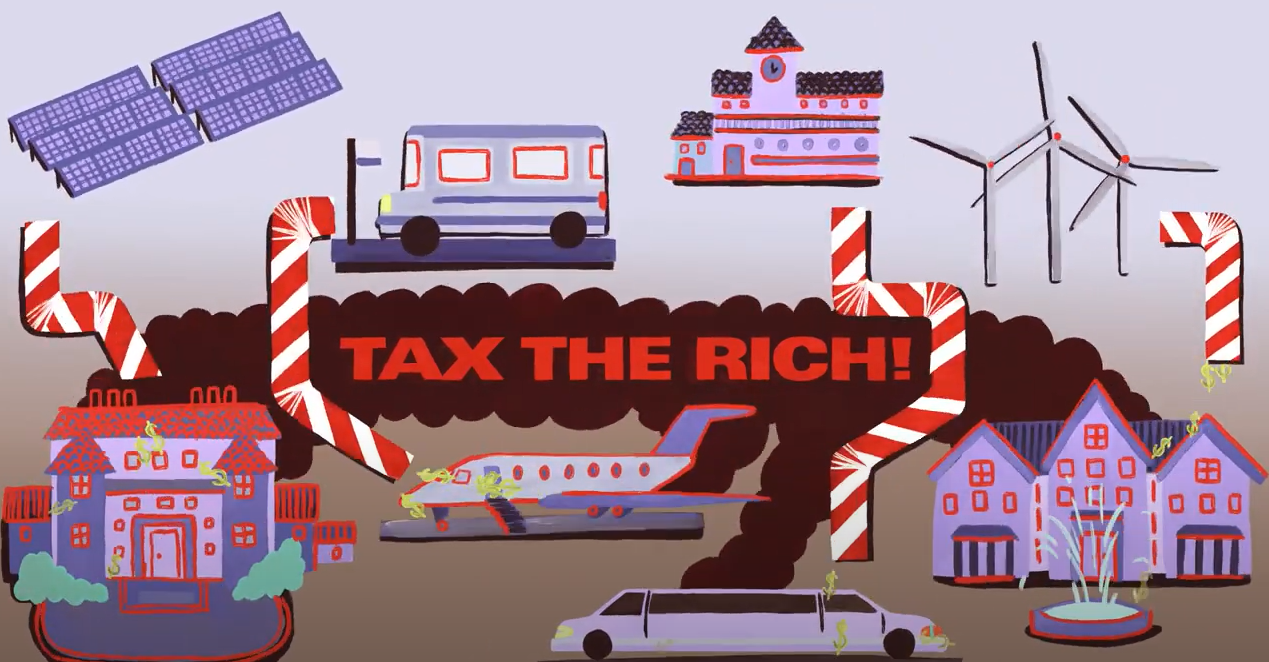Climate activists across the world have rallied behind the Palestinian cause. Will their German counterparts follow suit?
Since the Hamas attack in Southern Israel on 7 October, in which around 1,200 people lost their lives, the Israeli military’s response has taken over 30,000. The number of civilian victims continues to climb some five months into the war, with the daily death rate in Gaza amongst the highest of any major armed conflict of the twenty-first century.
Israel’s military response has gone beyond indiscriminate bombing, and now includes the mass displacement of Palestinians and destruction of their homes and civilian infrastructure, as well as a blockade of relief supplies leading to desperate shortages of food, water, and fuel. After South Africa brought charges of genocide against Israel to the International Court of Justice (ICJ) in The Hague, the court ruled that the accusation was “plausible” enough to warrant further hearings. After the ruling, the secretary general of Amnesty International Agnès Callamard was quoted as saying “Alarming signs of genocide in Gaza, and Israel’s flagrant disregard for international law highlight the urgent need for effective, unified pressure on Israel to stop its onslaught against Palestinians.”
Civil society is a key generator of that kind of unified pressure, and, as could be expected, the destruction of Gaza has become a focal point of activism for social justice movements across the globe. With its roots in the fight against neo-colonialism and neo-extractivism, the international climate justice movement is no exception. Yet advocacy for Gaza has not been without controversy, provoking a major split between the German movement and its international counterparts at a time when a strong, unified climate movement is more important than ever.
In Germany, the conflict has caused major rifts within climate justice groups such as Fridays for Future, whose German chapter initially distanced themselves from comments made by Greta Thunberg in support of the Palestinian people. However, as the war in Gaza continues, the group has now joined calls by the international climate justice movement for a ceasefire and the protection of human rights for Palestinian civilians.
Why has the international climate justice movement been so galvanized by the war in Gaza, and how can divisions within the movement around the question be understood and overcome? Nadja Charaby and David Williams of the Rosa Luxemburg Foundation spoke with human rights lawyer and feminist climate justice activist Kavita Naidu about the tensions around Gaza within the climate justice movement and civil society’s responsibility to oppose human rights violations everywhere.
You attended COP28 in Dubai, which took place almost three months after the latest explosion of violence in Gaza. How did the war impact the negotiations?
Multiple conflicts are ongoing globally at any point in time – including during COP meetings. The difference in 2023 was that, after nearly three months of destructive and disproportionate violence against Gaza, its people, and its infrastructure, a movement was galvanized, and a number of countries were moved to confront the imperialism of Western countries like the US, UK, Germany, France, and Australia, and their defence of Israel — even if Palestine was not formally part of the COP agenda.
In my view, this really exposed what has inherently been the greatest challenge in meeting the commitments of the Paris Agreement: the embargo on rapid, equitable, and fair decarbonization by the hegemonic power and privilege of the Global North and the wealthier parts of the Global South against the “poor and developing” countries. Many drew comparisons between how the US bullies poor countries in climate negotiations and its veto of Security Council resolutions calling for an immediate ceasefire.
This COP could no longer ignore the hypocrisy of huge financial and military contributions to Israel made by the Global North and India, while at the same time claiming there wasn’t any money available for the Green Climate Fund, adaptation, or the loss and damage fund. In light of evidence that the bombing of Palestine in the first two months was equivalent to the annual emissions of more than 20 of the world’s most climate vulnerable countries, it could not ignore the relationship between the climate crisis, peace, and security, and the outsized yet unaccounted role of military emissions. In fact, more than 5 percent of global emissions are linked to military conflicts.
Military emissions have always been a taboo topic in these negotiations, but it became apparent that in a world with a rapidly depleting carbon budget, engaging in yet another heavily militarized war after Ukraine was going to have irreversible consequences on global mitigation efforts.
A majority of climate justice organizing at COP was centred around the conflict in Gaza. Why was the conflict in Gaza so prominent, and why is it such a crucial issue for the international climate justice community?
Climate justice is a fight for racial justice, for economic justice, for environmental justice, for development justice, for gender justice, and for social justice. Climate activists understand deeply that climate justice is about these interconnected struggles against colonialism, imperialism, capitalism, patriarchy, and militarism. Our world is facing multiple crises because of the collusion between governments, corporations, the fossil fuels empire, Western media, technocrats and political and economic elites to sacrifice people and the planet for profit.
The systems of oppression causing the climate crisis are no different to those behind illegal embargoes, wars, and conflicts. The arms trade is thriving, emissions are on the rise, and people and innocent children in Gaza are being killed. Gazan land is being cleared for new Israeli developments and licences are being approved for oil and gas expansion in Gaza’s maritime territory. [1]
This is disaster capitalism. Therefore, there is no separation or distortion of “justice” issues when one is able to fully comprehend the insidious power of oppression.
Gaza has become a clarion call, a kind of ground zero for the atrocities perpetuated over decades of occupation, blockades, and environmental apartheid. The Middle East is one of the most climate-vulnerable regions in the world, and waging a war against the Palestinian people who were already facing enormous violations of human rights with little resources available to support their adaptation and resilience will most likely result in more deaths and displacement.
For the climate movement, and for all movements that are taking the streets across the world, if we remain silent, ignore, and allow what is happening in Gaza — if we allow governments to be complicit in this genocide, then we are not only condemning Palestinian people but humanity as a whole for the political and economic interests of the rich and powerful.
Actors from the Global North, particularly in Germany, have been reluctant to formulate clear positions on Gaza. How is the international climate justice community reacting to this hesitancy? How has it affected Germany’s standing?
We are aware of the sweeping crackdowns, censorship, surveillance, and criminalization of pro-Palestinian German supporters. Many have been fired from their jobs, resigned, or vilified for speaking up for Palestine. Arab and Muslim migrant communities are forced to remain silent for fear of risking their residency status in Germany.
The German chapter of Fridays for Future choosing to distance itself from Greta Thunberg’s support for Palestine was very disappointing. German funders are defunding organizations, particularly those in the Global South who have released statements in support of Palestine. Germany continues to arm Israel and provide humanitarian aid that doesn’t even reach Gaza. Last year, it approved the export of close to 303 million euro worth of defence equipment to Israel, a tenfold increase from 2022. Last November, Germany had already announced that it will halt new aid commitments to UNRWA. The day following the ICJ orders, Germany along with its allies froze funding to UNRWA. Germany even went further to support Israel at the ICJ at a time when the large majority of the world did not, deepening the geopolitical gap between the Global North and Global South.
We are not surprised by the German government’s position. However, we are very surprised that a majority in the German climate and social justice movements also side with the Israeli regime. Germany has one of the largest Palestinian diasporic communities in Europe, and the racism against its Muslim citizens is well documented.
As civil society, our role is to hold states accountable for all atrocities and human rights violations. To take a selective position because your historical guilt has taught you to conflate anti-Semitism with anti-Zionism is troubling. At a time when global civil society is uniting behind demanding a ceasefire and Palestinian liberation, the German climate movement has become a pariah. This will further the divide between the climate justice movements in the Global North and Global South.
Do you see a pathway in which the movement can overcome these differences going forward? For trust and cooperation to be rebuilt?
Clearly, the German movement needs a course correction in terms of its political education and knowledge of German colonial history — not only of the Holocaust, but also the Herero and Nama genocide, the Nakba, and Germany’s colonial plunder, pillage, extraction, production, consumption, pollution, and waste that is as relevant today as it was centuries ago. The German movement needs a reality check if it wants to remain a powerful ally to the global climate justice movement.
I believe there are a number of pro-Palestinian climate activists in Germany who likely feel isolated and lack collective power and solidarity. There is a critical need for new spaces and forums to connect these people to each other and for them to strategize together on how to resolve the differences and challenge the state and the rest of the German climate movement. There are powerful climate leaders and experts from around the world who can speak directly to the German climate movement not only to “educate” them, but share stories of resistance to remind each other exactly why we need to remain united against all human rights and climate injustices.
This moment of reckoning is now, because if the German movement does not step up in solidarity with the global climate justice movement, I am not sure if it will ever be able to absolve itself of this position and rebuild its trust or legitimacy in the wider movement landscape.
Some are calling for the climate justice movement to focus on the issues where positions are more aligned. Seen through a different lens, however, the war in Gaza has had a unifying effect primarily among climate justice advocates and activists in the Global South, challenging Western hegemony and perceived moral superiority — the ICJ case being a prime example. In that sense, do you see global unity as necessarily desirable?
We from the Global South have fought very hard and for a very long time to decolonize the climate movement. We understand that the Westernized systems and institutions that control and govern the world are inherently colonial, and yet we have been able to raise our demands successfully because of the deep solidarity of our Global North climate allies.
Together, we have reframed climate action to climate justice – with justice being at the forefront of a decarbonized and sustainable planet for everyone, not just privileged communities. As a global movement, we have stood together on justice issues and as it relates to mitigation, adaptation, and loss and damage. We openly criticize not just the hegemonic powers in the Global North, but our own governments that are equally complicit in carbon capitalism. As such, the movement stands to challenge as one all systems of oppression that are causing and accelerating the climate crisis.
The German climate movement’s position is at great odds with what has been the established practice of global solidarity. We must prevent it from becoming the fissure that permanently separates it from the global movement. COP gave all of us an opportunity to unite stronger than ever. As a movement, we stepped up to speak on Palestine, and many of us are now linking the climate crisis, war, and the Palestinian struggle to avert any future atrocities of this scale against anybody.
We cannot afford to split the global climate movement at a time when we are needed most – we can only tackle this metastasizing polycrisis together.
From research centres to NGOs and cultural institutions, we have seen many internal letters and public petitions from employees criticizing the position (or lack thereof) of their own organizations, particularly in the Global North. How would you evaluate this method as a way to build pressure to stop the onslaught against Palestinians?
One thing we have heard from the Palestinian people over and over again is that we must never stop talking about Palestine. Every individual, group, and community speaking up for Palestine is lending power to our cause for justice, peace, and humanity. People are outraged, they are despairing, and they feel overwhelmed by their helplessness.
Writing letters to protesting on the streets to speaking publicly — every single action that keeps Palestine on the agenda keeps the pressure on governments to step up. It gives people a place to channel their rage and find hope when millions around the world are doing the same. I believe this is working to incrementally start shifting attitudes and politics.
In recent days, the German Foreign Minister Annalena Baerbock told reporters in Jerusalem that “the security of the people in Israel is just as important as the survival of the Palestinians”. Now, German lawyers have filed charges against Chancellor Scholz and other high-level politicians on behalf of German Palestinian families for “aiding and abetting genocide”.
We must continue to find ways to put pressure and mobilize, because there is nothing as important as saving the lives of the oppressed.
[1] Editorial note: We cannot fully verify the statement that the new licenses for the development of gas fields awarded in October 2023 also affect the maritime area of the Gaza Strip.
Kavita Naidu is an international human rights lawyer based in Sydney, Australia.
Top photo: Action in solidarity with Palestine and oppressed peoples worldwide, by civil society at COP28 in Dubai, 3 December 2023. Credit: Lise Masson, FoEI.



